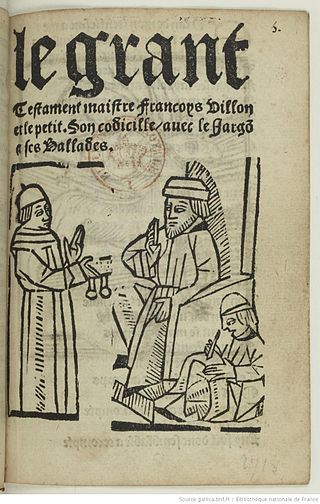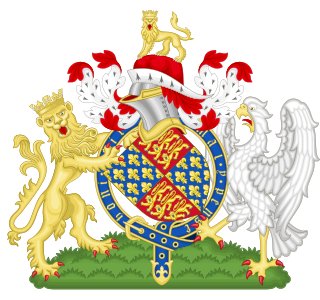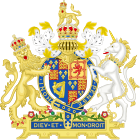
The English Poor Laws were a system of poor relief in England and Wales that developed out of the codification of late-medieval and Tudor-era laws in 1587–1598. The system continued until the modern welfare state emerged after the Second World War.
The Abraham-men were a class of beggars claiming to be lunatics allowed out of restraint, in the Tudor and Stuart periods in England.

Thieves' cant is a cant, cryptolect, or argot which was formerly used by thieves, beggars, and hustlers of various kinds in Great Britain and to a lesser extent in other English-speaking countries. It is now mostly obsolete and used in literature and fantasy role-playing, although individual terms continue to be used in the criminal subcultures of Britain and the United States.

A Caveat or Warning for Common Cursitors, vulgarly called vagabonds was first published in 1566 by Thomas Harman, and although no copies of that edition survive, it must have been popular, because two printers were punished by the Stationers' Company in 1567 for pirated editions. Two editions were published in 1568, and a revised edition in 1573. It is one of the fundamental texts for rogue literature. Harman is one of the first writers to use the word rogue, which was adopted in the Poor Law legislation of 1572.

The Act 7 Ric. 2. c. 5 (1383), sometimes called the Beggars Act 1383, the Vagrancy Act, or the Vagabonds Act 1383, was an Act of the Parliament of England made at Westminster in 1383, after the Peasants' Revolt (1381).

The Poor Relief Act 1601 was an Act of the Parliament of England. The Act for the Relief of the Poor 1601, popularly known as the Elizabethan Poor Law, "43rd Elizabeth" or the Old Poor Law was passed in 1601 and created a poor law system for England and Wales.

In English and British history, poor relief refers to government and ecclesiastical action to relieve poverty. Over the centuries, various authorities have needed to decide whose poverty deserves relief and also who should bear the cost of helping the poor. Alongside ever-changing attitudes towards poverty, many methods have been attempted to answer these questions. Since the early 16th century legislation on poverty enacted by the English Parliament, poor relief has developed from being little more than a systematic means of punishment into a complex system of government-funded support and protection, especially following the creation in the 1940s of the welfare state. Poor relief will control crime if adequately given.

The house of correction was a type of establishment built after the passing of the Elizabethan Poor Law (1601), places where those who were "unwilling to work", including vagrants and beggars, were set to work. The building of houses of correction came after the passing of an amendment to the Elizabethan Poor Law. However the houses of correction were not considered a part of the Elizabethan Poor Law system because the Act distinguished between settled poor and wandering poor.

Vagrancy is the condition of homelessness without regular employment or income. Vagrants usually live in poverty and support themselves by begging, scavenging, petty theft, temporary work, or social security. Historically, vagrancy in Western societies was associated with petty crime, begging and lawlessness, and punishable by law with forced labor, military service, imprisonment, or confinement to dedicated labor houses.

The Vagrancy Act 1824 is an Act of Parliament of the United Kingdom that makes it an offence to sleep rough or beg in England and Wales. The legislation was passed in Georgian England to combat the increasing number of people forced to live on the streets due to the conclusion of the Napoleonic Wars and the social effects of the Industrial Revolution. Critics of the law included politician and abolitionist, William Wilberforce, who condemned the Act for making it a catch-all offence for vagrancy with no consideration of the circumstances as to why an individual might be homeless.
The following article presents a Timeline of the Poor Law system from its origins in the Tudor and Elizabethan era to its abolition in 1948.
The Tudor Poor Laws were the laws regarding poor relief in the Kingdom of England around the time of the Tudor period (1485–1603). The Tudor Poor Laws ended with the passing of the Elizabethan Poor Law in 1601, two years before the end of the Tudor dynasty, a piece of legislation which codified the previous Tudor legislation.

In historical English law, a sturdy beggar was a person who was fit and able to work, but begged or wandered for a living instead. The Statute of Cambridge 1388 was an early law which differentiated between sturdy beggars and the infirm poor. The Vagabonds and Beggars Act 1494 listed restrictions and punishments.
Vagabonds Act may refer to:
Vagrancy Act may refer to:

The Act for Punishment of Sturdy Vagabonds and Beggars was an act passed in Tudor England by Henry VIII. It is part of the Tudor Poor Laws. It was the earliest English Poor Law to provide for structured collections for the poor.

The Act for the Provision and Relief of the Poor was a statute passed by the Parliament of England during the reign of King Edward VI. It is a part of the Tudor Poor Laws and reaffirms previous poor laws enacted in 1536, 1547, and 1549 which focused primarily on the punishment of vagabonds. The Poor Act of 1552 designated a new position, "collector of alms," in each parish. Local authorities and residents elected two alms collectors to request, record, and distribute charitable donations for poor relief. It further provided that each parish would keep a register of all its “impotent, aged, and needy persons” and the aid they received. Parish authorities were directed to “gently exhort” any person that could contribute but would not, referring them to the Bishop of the Diocese if they continued to refuse. Punishment for neglecting poor relief obligations was adopted in 1563 and reliance on charity was replaced by a system of taxation in 1597. Under the assumption that all poor would be cared for, begging openly was now forbidden. Licensed begging would be reinstated by the Marian Parliament of 1555 with the requirement that legal beggars wear badges.

The Vagabonds Act 1572 or the Vagabonds, etc. Act 1572 was a law passed in England under Queen Elizabeth I. It is a part of the Tudor Poor Laws and a predecessor to the Elizabethan Poor Laws.

The Vagrancy Act 1898 was a piece of legislation in England and Wales that criminalised men who lived off the earnings of prostitution (pimping) and who solicited in public places. The bill was generally viewed as successful in its impact, leading to the similar Immoral Traffic (Scotland) Act.

The Egyptians Act 1554 is a piece of 16th-century English legislation regarding Romani and travelers within the realm. The act was passed to amend previous laws regarding the Romani people. The Egyptians Act 1530 did not cover Gypsies who were born in England or those who came to England by way of Scotland.















